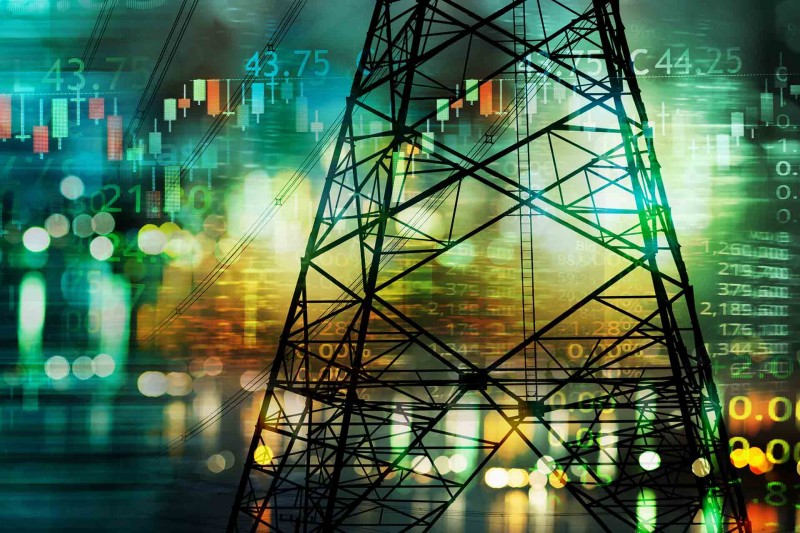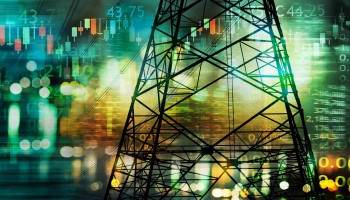In a country that produces more electricity than it needs, the email family in Sarajevo spent the whole month of last December without electricity. They are not alone. Whole villages in Bosnia-Herzegovina do not have electricity.
The only light Amela, Sanel and Habibia email used to do their homework that month came through a window from a street lamp. The dark month was the third time electricity has been cut off to their home in the last year. Bika email said that her family of six earns 85 KM a month, while the electric bill can be as high as 50 KM.
Her three children and a 2-month old baby are just numbers in the records and statistics of the three BH utilities. Elektroprivreda Federacije BiH (EPBiH), Elektroprivreda Republike Srpske (EPRS) and Elektroprivreda Hrvatske Zajednice Herceg Bosna (EPHZHB) disconnected electricity to some 70,000 households last year because of unpaid bills.
Power companies say they are forced to adopt such unpopular measures as they attempt the huge tasks of becoming profitable businesses, privatizing and splitting up resources to allow for open competition.
To serve people who do not pay they risk running up deficits. But cutting them off is making some of the most vulnerable people in BiH suffer.
Meanwhile, audits of the three companies show a pattern of waste, signing harmful contracts with wealthy energy traders and failing to adequately account for income and expenses.
For email, the choice is simple but hard.
"If I have to choose between the payment and buying food for the children, I always buy food," said email, in tears.
Power bills must be paid each month. It doesn't matter if pension payments or salaries are late, or even whether you have a job. There are no exceptions to paying.
An attempt earlier this year to increase electricity energy prices provoked massive citizen outrage, but that is not the end. The companies, mired in a painful change to a market economy, say that despite the dissatisfaction of BiH citizens over electricity prices, current prices are still too low and must increase to cover actual costs.
The companies also point out that social policies should not be implemented through utilities and that collecting debts is a basic condition for profitable operation.
While BiH utilities have been quick to disconnect residential customers, they have often failed to do the same with companies that owe them tens of millions of KM, especially state industries.
For example, Elektrobosna N (EBN) in Jajce ran up 22 million KM in debt to EPHZHB in Mostar - enough to pay the bills of 40,000 residential customers for one year. Financial police say the then-owners were engaged in forgery and misuse of funds in an illegal privatization. The owners, backed by HDZ politicians, kept the company connected for years until it was auctioned off in bankruptcy court.
Compared to other European countries, energy prices are low. For example, an average bill for a Sarajevan family of four would be 65 KM in December. A similar family in Zagreb would spend 80 KM. The same family in Belgrade would pay 30 KM in the same period.
Even though electricity prices in BiH are lower than in Croatia , they are too high for most of the citizens. According to World Bank data, about 50 percent of citizens in BiH live under or around the poverty line. That means that half of the citizens earn about 180 KM per month.
For many, the powerless life has become routine. On the day reporters from the Center for Investigative Reporting (CIN) in Sarajevo visited, email and her children were collecting wood in the neighborhood in order to heat their rooms and cook lunch on a stove.
"I'm afraid to turn on the stove. That costs," said email.
The last time her electricity was turned off, an electric company employee told her that if she failed to pay again, they were not going to reconnect her even if she paid, she said.
Besides young families like the emails, pensioners also say electricity bills are an insurmountable problem.
BiH retirees pay on average one third of their pension for electricity in the winter. Many say electric bills gall them, because a percentage of their salary over 35 or 40 years had gone into the development of BiH power industry.
Seventy-eight-year old "efkija Elezovi", an M.A. in economics who worked for 35 years as a manager of various companies, smiles as he recalls days filled with trips to the seaside and excursions. When, as he put it, one lived with dignity. Life is now miserable for many of his generation.
"I watch them sift through rubbish looking for food-the generations of people who have built this country."
A decision this spring by the FBiH energy regulatory commission to raise prices by about 6.5 percent was met by a fierce opposition by pensioners. "evkija Elezovi" calls the decision to raise rates outrageous and the regulators and utility company directors soulless.
"Those are immoral people; wolves that a man can't beat," said evkija.
Pensioners with the lowest incomes, about 165 KM a month, have the biggest problem and there are more than 120,000 of them in BiH.
International energy experts helping Bosnia and other countries build a market economy say energy prices must go up to pay for development of the industry but regional governments must put social programs in place to help the most vulnerable.
Elektroprivreda BiH has no information about how many pensioners they serve.
"We don't make a social picture of our customers," says Mediha olo, EP BiH spokesperson.
It's not just individuals who suffer. Whole communities in BiH are without electricity. Infrastructure destroyed by the war among the states of the former Yugoslavia , especially in areas where ethnic minorities lived, has never been repaired due to a lack of funds and political will. It is posing a serious obstacle for the return of refugees, according to Milke Matovi, state ministry for refugees.
According to the ministry 4,000 to 5,000 returnees' households don't have electricity. According to BiH law, every family that had power before the war has a right to it today. That right is supposed to be secured by the ministry for refugees, but also by the utility companies.
According to Matovi, on the meetings between the ministry and the utilities officials, the latter said that they are willing to fix the grid, but that they don't have enough funds for it.
"They are willing to do it, but they always say how they don't have money. I think that they are used to getting (international aid) grants. In a way, they expect somebody else to do it."
Mati said the situation again is becoming a permanent part of life for returnees.
"Unfortunately, people have learned to live with it, but to live in that way I think is horrible."
Trnovo municipality, half an hour ride away from Sarajevo , is a powerless community. In this municipality alone, there are 11 villages without electricity. People don't return home because it's so hard to live here.
Among them is 58-year old Ramiz ipa, who lived in the village of Boljanovi before the war.
But Ramiz and his wife currently live in their son's house in Sarajevo . Ramiz has for years been listening to "shallow" promises he no longer believes from the municipal officials.
"I would return this minute, but not without electricity-the food we bring with us cannot hold without the refrigerator," said ipa as he stood in the basement of the half-refurnished house in which he and his two children were born.
Luckily, he's not under pressure to return to his village, said ipa.
Ratko and Gospava Ivanovi are an elderly couple who had no choice but to return to Lisovci. They are the only residents of the village. Before that, they lived as refugees in Serbia and BiH. When they were no longer able to pay rent, they went back to Lisovci.
They've been married for 40 years and have lived through many problems, but as 68-year old Gospava said, it has never been harder than now. They light a candle in the evening and it burns out quickly, said Gospava. They sit in darkness.
"He tells me, 'Gospava don't worry, the electricity will come'," said Gospava, in tears. "And then he would say he's sorry - and asks for my forgiveness because he was not able to provide better life for me."
Their three children rarely come to visit from Sarajevo . The only bridge connecting the village with the outside world was swept away by the river last fall. Now the village is cut off and it can only be accessed on foot.
"If we had electricity, then it would have been easier. We'd have a TV and it would feel right away as if children were there," said Gospava.
Even though their house is only two kilometers away from the closest electric pole, it is not clear when they will get electricity.
"Living in darkness and death are the same," she said.



